QuestionHi Labman,
We just got two pups- a German Shepherd girl and a Lab boy. They are currently 5 and 6 weeks respectively. We have now realized that both have completely opposite temperaments - while the GSD is very aggressive, keeps biting the lab and does not listen to my "No's", the lab is a cool cucumber who doen't want to be disturbed during his long hours of sleep. Althought he loves playing with the GSD, she always overpowers him and hurts him - the lab always ends up crying. We don't know how to deal with this problem.
We love both and wish to see them grow together. But we don't want to compromise with the lab's happiness and cool temperament. Also, the GSD does not seem to obey any commands. We never hit or spank her- only say 'No" loudly but that doesn't seem to be helping. She's at the lab all the time!!
I'd greatly appreciate your advise in this matter.
Thanks!
AnswerGet a good book and start obedience training the German Shepherd, and the Lab too. Keep sessions short at that age, only a few repetitions. You may want to find a class after they are old enough. A good book? Try
The Cultural Clash by Jean Donaldson, 1996
Excel-crated Learning by Pamela Reid, 1996
Don't Shoot the Dog, by Karen Pryor, 1996
Surviving Your Dog's Adolescence, by Carol Lea Benjamin, 1993
Second Hand dog, by Carol Lea Benjamin, 1988
Dog Problems, by Carol Lea Benjamin, 1989
Super Puppy, by Peter J. Vollmer, 1988
HELP, Mt dog Has an Attitude, by Gwen Bohnenkamp, 1994
Owners' Guide Better Behavior in Dogs and Cats, by William Campbell, 1989
What All Good dogs Should Know, By Wendy Vollmer, 1991
When the Lab seem to have all he can take and is crying, give her an ''Ut, ut, ut!''. Pull her away and try one of these exercises:
''Elevation for small puppies: Sit on the floor and gently put your hands around your pup's middle, below his front legs, and lift him up. He is facing you. Hold him for 15 seconds. Repeat until he no longer struggles. If he is past 10-12 weeks, lift his front feet off the ground, but don't pick him up.
Cradling for small puppies: Hold your puppy gently on his back, as you would cradle a small baby. If he struggles, hold him firmly until he quiets for 10-15 seconds. With larger pups, you can do this as your sit on the floor, with your pup between your legs.
Quiet lying down: Place your pup on the floor on his side, with all 4 legs pointing away from you. Use your hands on his neck/shoulder area and middle, to hold him in this position. When he is quiet, praise him. Lengthen the time that you keep him quietly in this position. When he accepts this position well, handle his paws and muzzle, while keeping him quiet.''
The quotes mean this isn't my original work. It is copied from my Puppy Raising Manual. I have long used these or minor variations of them, and they are very effective. You may want to give him a belly rub while he is on his back too. Helps bonding. There is a big difference between her rolling over and demanding a belly rub, and you choosing a time to roll her over and rub her belly. The latter cements your place as pack leader.
The key to most behavior problems is approaching things using the dog's natural instincts. Dogs see all the people and dogs in the household as a pack with each having their own rank in the pack and a top dog. Life is much easier if the 2 legged pack members outrank the 4 legged ones. You can learn to play the role of top dog by reading some books or going to a good obedience class. A good obedience class or book is about you being top dog, not about rewarding standard commands with a treat. Start at http://www.dogsbestfriend.com/
Note, 5-6 weeks is young to leave their mother and litter mates. it will reduce some of the problems by having each other. It wouldn't hurt to let them spend some time with other health dogs. No shot program can completely protect young puppies from disease carrying dogs.

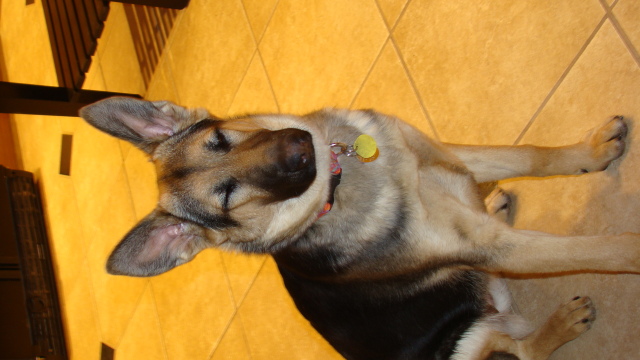 tymber
Question
tymber
ok my gsd is now 7 months old and i hav
tymber
Question
tymber
ok my gsd is now 7 months old and i hav
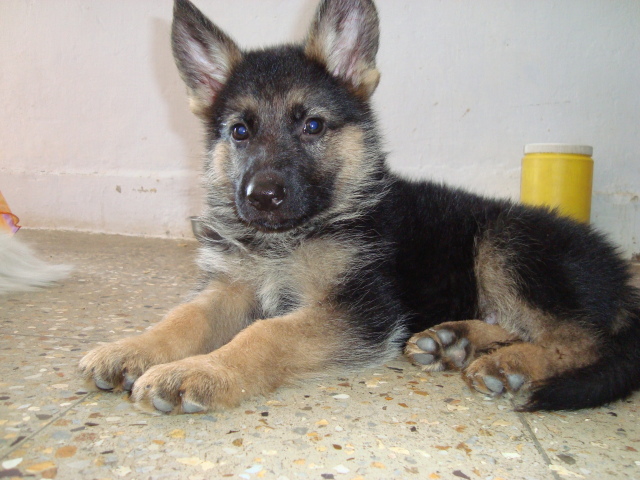 puppy weight
Question
Rocky
I recently purchase 2 mnths old GS puppy
puppy weight
Question
Rocky
I recently purchase 2 mnths old GS puppy
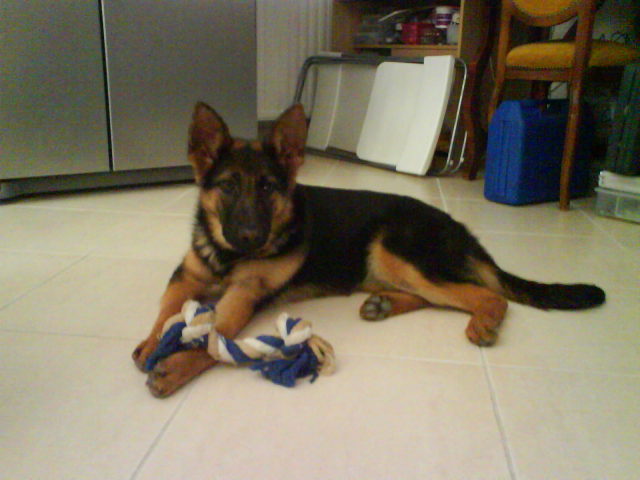 poor growth because bad nutrition
Question
7 month
I bought a female gsd when she was 7 m
poor growth because bad nutrition
Question
7 month
I bought a female gsd when she was 7 m
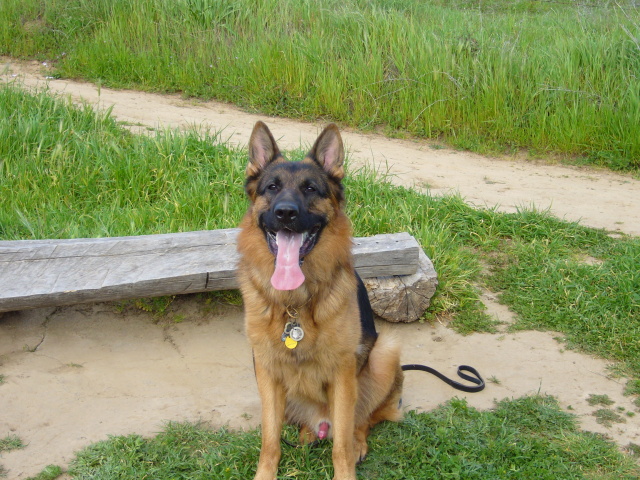 Aggression
Question
Ray
Hello, I need help...I lost my female GSD
Aggression
Question
Ray
Hello, I need help...I lost my female GSD
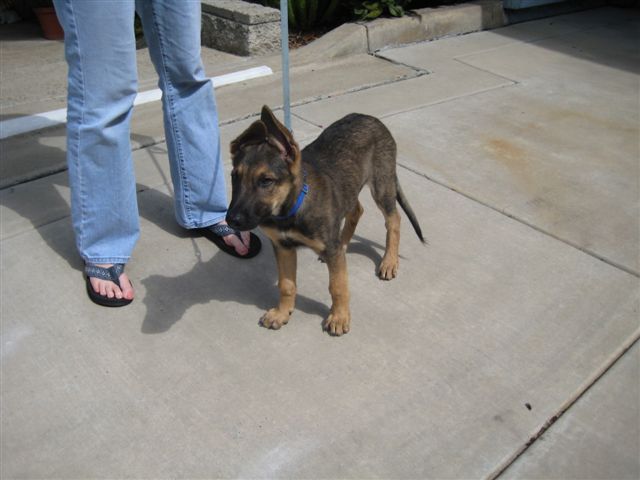 3 month old German Shepherd ears.
QuestionQUESTION: Hello and thank you for you time. I a
3 month old German Shepherd ears.
QuestionQUESTION: Hello and thank you for you time. I a